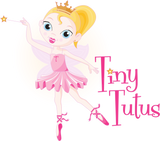The Importance of Ballet in Early Childhood Development
You watch her twirl and spin every day.
You see the complete joy and excitement on her face when her favourite song starts to play.
If you’ve been thinking about putting your little dancer in a ballet class, then considering the benefits ballet offers to the development of your child, make this an easy choice. Both physically and psychologically, the benefits of ballet in early childhood are worth the commitment.
Physical Development: A well structure, early childhood ballet curriculum, sensitive to the developmental needs of young ballerinas and toddlers, is ideal for strength, flexibility and fundamental movement.
The repetitive movements involved in preschool ballet can improve muscle tone, correct poor posture, increase balance and coordination and improve overall cardiovascular health. A pre-school ballet curriculum that includes jumping (Sauté) and leaping (Jeté) and increases heart rates, improves, stamina and endurance. Skipping, galloping and cross-over activities, help little ballerinas with bilateral skills (using both sides of the body at the same time) which help with daily life skills such as putting on shoes and socks.
Emotional Development: Just watching a preschool ballet class you could mistakenly think, ballet doesn’t look like a particularly emotional activity. But the truth is, ballet teaches children self- control, self-discipline and confidence which contribute to building emotional maturity. In an early childhood structured ballet class, children follow directions closely. Ballet requires practice and focus which are skills that can be transferred to other areas of your child’s life.

Early childhood ballet, encourages your child to become attentive and focused. They discover what it means to ‘pay attention’ and follow the group. They focus on body movements, learning the pattern of the class which flows between focused attention and free creativity.
They learn behavioural expectations such as when it’s important to focus and when it’s time for free dancing and creative movement. Understanding the ebb and flow of lessons is a skills which will see future success in a formal school setting.
Cognitive Development: An early childhood ballet curriculum has some major cognitive benefits. First of all, it expands vocabulary through learning the French names of the steps and hearing the musical terms. Ballet develops a little ballerina’s musicality and rhythm through coordinating their body to the music. Ballet lessons provide amazing opportunities to count and learn about number in a practical way. A further cognitive benefit is memory as ballerinas create new neurological pathways memorising new steps and ways to move their body.
Creativity: Ballet can be a gateway for instilling in children a love of music and culture. Learning dance moves isn’t easy. It takes practice and a level of creativity on the part of the dancers to picture and then execute the movements. Ballerinas are exposed to a combination of movement, performance, learning and memorising that enhance their sensory awareness and
cognition. Memory, focus, and consciousness with what is going on around them are skills that will benefit children in all areas of life.

Improved Social Skills: Your child won’t be dancing in a room alone. They’ll be with a group of other young ballerinas learning all the steps, engaging in conversation, and learning that it takes team work to make any routine possible. You’ll be surprised just how much self confidence your ballerina can gain just by being a valued and accepted part of a group. Learning ballet increases poise and encourages young ballerinas to transition from parallel play to co-operative play and to start exploring friendship building and teamwork.
Improved Self-Esteem: A developmentally appropriate curriculum allows children to explore movements and postures required in ballet. As ballerinas begin to get a better sense of their bodies, they become more comfortable in their own skin, their confidence and self-esteem also improve. Early childhood ballet lessons can encourage children to foster a more positive attitude and explore their own self-expression.
At Tiny Tutus, we are advocates of Early Childhood Appropriate Curriculum. Our curriculum engages the imaginations of even
the littlest ballerinas and provides opportunities for exploration, imagination and creativity in a structured format emphasising correct teaching techniques and terminology.
Early childhood ballet classes not only help children excel in dance, but in everyday life and when they are ready for the big step of kindergarten.

References:
http://www.ndeo.org/content.aspx?page_id=22&club_id=893257&module_id=55419
http://ausdance.org.au/articles/details/the-arts- in-the- early-years- learning-framework
https://researchbank.rmit.edu.au/eserv/rmit:6350/Crowe.pdf
Article by Simone Cadell
 Simone began her ‘dancing career’ at three years of age. She gained her formal Dance Teaching Qualifications at 18 years of age, before completing a degree in Early Childhood Education. Just a few years into her full time school teaching career, Simone was merit selected for the position of Assistant Principal and became one of the youngest Assistant Principals in Newcastle and one of the only with Early Childhood Qualifications.
Simone began her ‘dancing career’ at three years of age. She gained her formal Dance Teaching Qualifications at 18 years of age, before completing a degree in Early Childhood Education. Just a few years into her full time school teaching career, Simone was merit selected for the position of Assistant Principal and became one of the youngest Assistant Principals in Newcastle and one of the only with Early Childhood Qualifications.
Throughout this time, Simone opened and operated her own dance studio. The successful studio saw her dancers excel at dance competitions and public performances, as well as gain success on a professional level in productions of “Tap Dogs”, “Steel City” and “Annie”.
Tiny Tutus is a dedicated preschool ballet program especially for dancers under 5 years of age, providing an early childhood appropriate curriculum.
